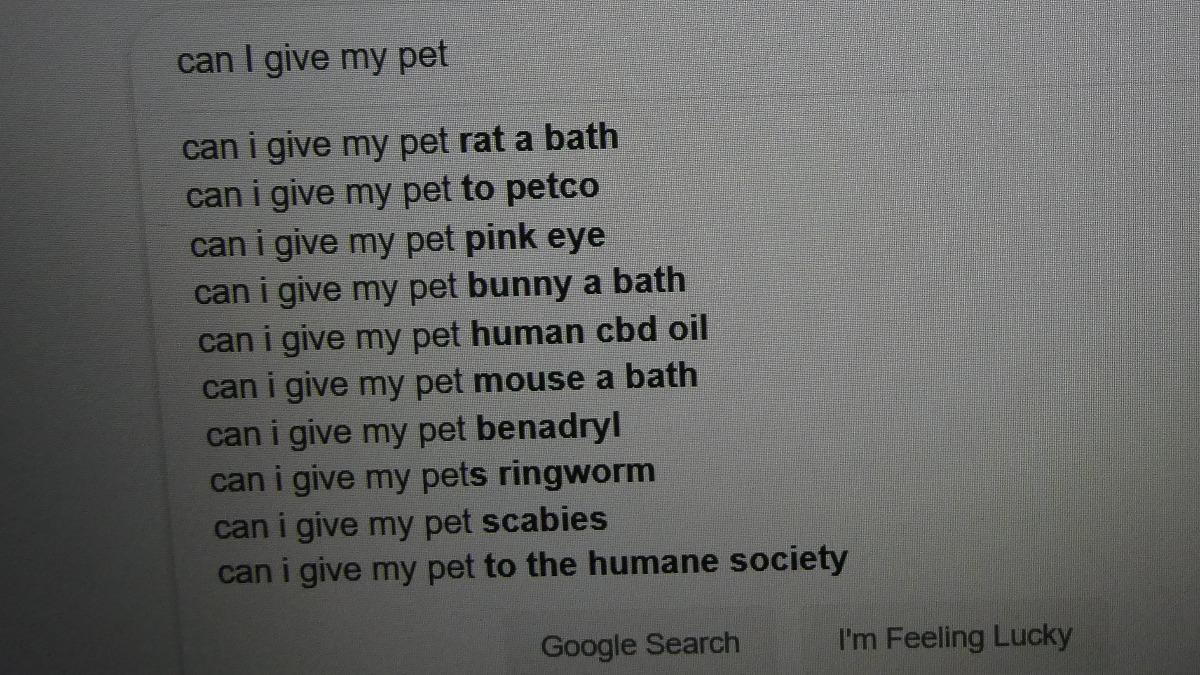Seeking Pet Care Advice on the Internet: The Good, the Bad and the Crazy

- posted: Aug. 10, 2019
Pet Care Advice on the Internet: The Good, the Bad and the Crazy
Let’s face it, in today’s digital world, almost everyone relies on the internet at some point for information, including pet owners. But, how do you find reputable sources and good information about pet care online?
First of all, please don’t ever hesitate to call your veterinarian before consulting the web for advice. Veterinarians have spent 8 or more years learning our trade. We’re passionate about our profession and we are here to help your pet. If you need advice on what to feed your cat, what to put on the weird spot on your dog’s skin, or how to stop your pet bird from pulling out her feathers, your vet should be your first source of information. While we don’t always know the answers immediately, we have resources and networks to help find the best information on how to treat your pet.
We get it: sometimes something happens after we’re closed and you need information, you just have a “what if” question and don’t want to bother someone or you figure if you can look up your own symptoms on WebMd, why not check online to see what might be wrong with your pet? And, yes, there are places online to find good medical information about your pet, but there is also a lot of bad information, misinformation and even harmful information out there. So, where should you turn for good information?
The Good: There are a number of websites that offer accurate information about various aspects of pet care. And, while the internet should NEVER be a substitute for seeking proper pet care, there are some sites that offer really good advice.
The Bad: That being said, don’t believe everything you read. There are many websites and Facebook pages that bash certain drugs and foods as being bad for your pet; however, there is often no real science behind these claims. We wouldn’t recommend or sell products if we didn’t believe they were safe so remember to ask the vet first!
The Crazy: Thankfully, there aren’t many of these, but there are some sites that offer-shall we say-questionable information. Garlic for flea treatment (garlic can actually be toxic to pets), allowing a pet to lick its own wound because it will clean and heal it (absolutely false—pet’s mouths have loads of bacteria!), and, while I only found one discussion board that entertained this idea, there is still mention of dousing pets afflicted with mange in motor oil as a cure--a HUGE no-no for various reasons that I should not have to explain.
Listed below are trusted websites. Many are geared for veterinarians, but most have client information about pets as well. And, don’t forget Patton Veterinary Hospital’s own website! We have lots of good information online at www.pattonvethospital.com! Make your vet your first source of information about your pet, and use only trusted websites for the rest!
https://www.avma.org/public/PetCare/Pages/default.aspx (THE authority on veterinary care!)
www.ASPCA.org (scroll all the way to the bottom of the page and click the link for Pet Care)
https://fearfreehappyhomes.com/
This blog brought to you by the Patton Veterinary Hospital serving Red Lion, York and the surrounding communities.
Location
Patton Veterinary Hospital
425 E Broadway
Red Lion, PA 17356
